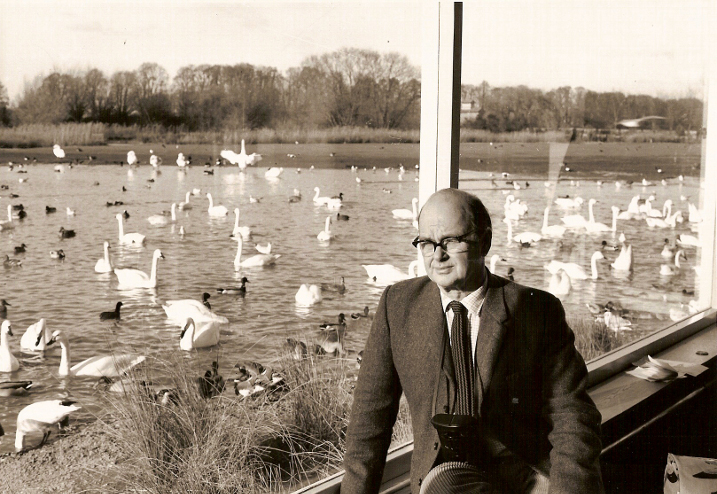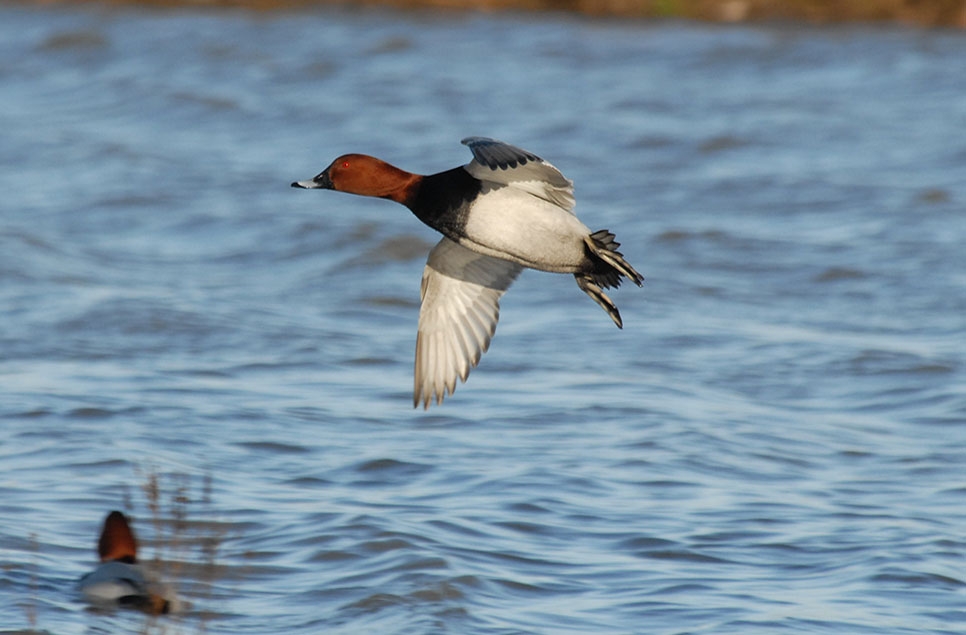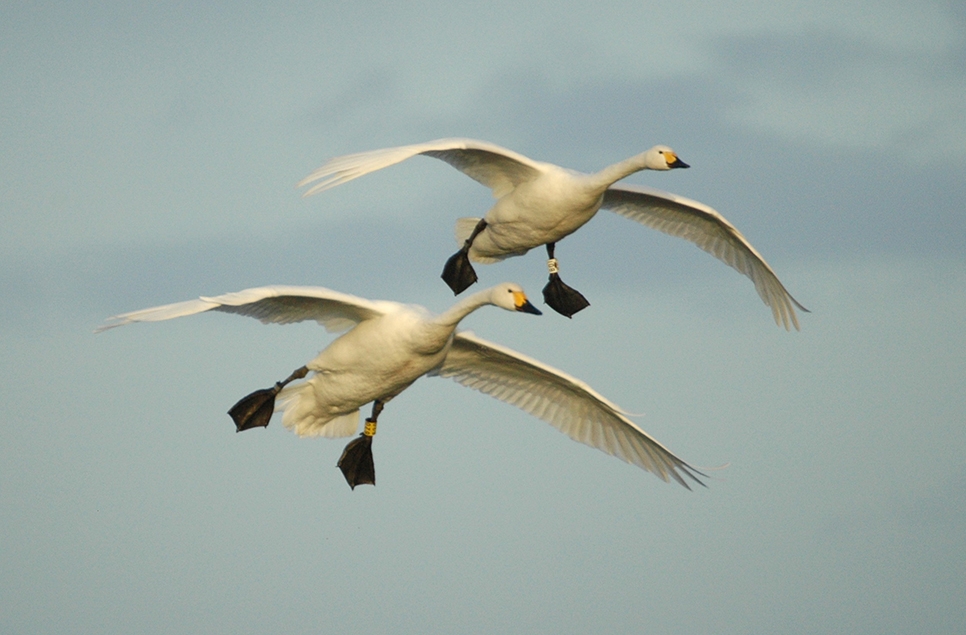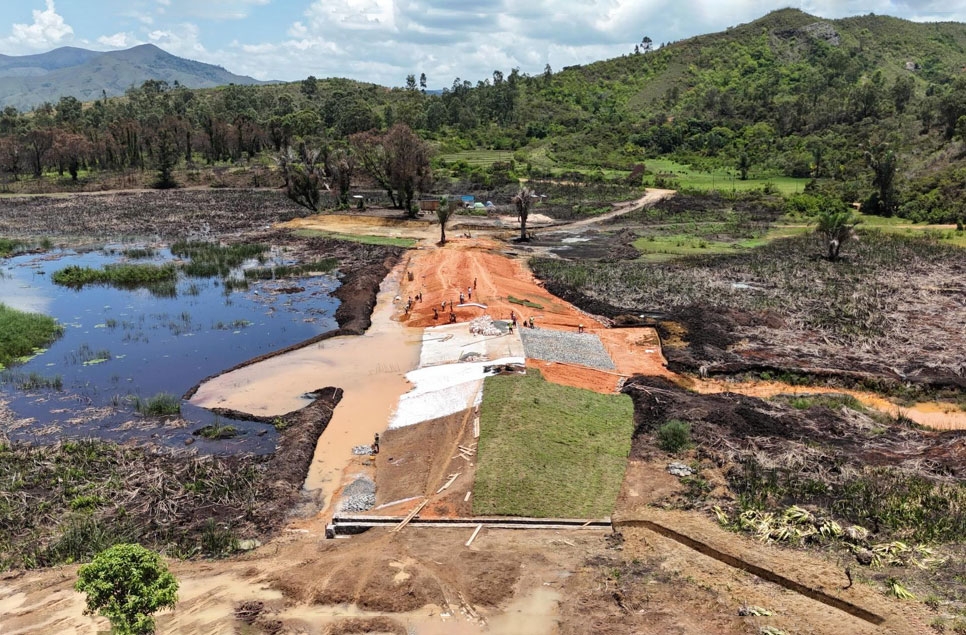National Lottery support to transform the birthplace of conservation
A £4.1m National Lottery grant has been awarded to WWT Slimbridge Wetland Centre, Gloucestershire, in a three-year project that will pay tribute to founder, Sir Peter Scott in a range of developments aimed at creating inspirational wildlife experiences.
Following the ravages of WWII, Scott – an established wildfowl artist - was determined to find ways to inspire national and international interest in the wildlife he loved so much. At Slimbridge, the presence of the rare lesser white fronted goose convinced him that this was the place to set up a wildfowl centre.
Described as “the patron saint of conservation” by Sir David Attenborough, Scott’s pioneering instinct led to the inception of the Wildfowl & Wetland Trust (WWT) in 1946 at Slimbridge, not only as a centre for science and conservation but also, unusual for the time, opening its doors to the public. Scott was particularly enthusiastic about giving anyone and everyone the opportunity to get close to nature and, in turn, inspire them to take action to protect it. For this reason, Slimbridge is often referred to as the birthplace of modern conservation.
 Peter Scott in front of a picture window with a back drop of swans etc[/caption]
Peter Scott in front of a picture window with a back drop of swans etc[/caption]
The team at Slimbridge are looking to continue Scott’s legacy through a range of ground-breaking experiences that show how Scott's work continues to influence modern conservation globally. Thanks to the National Lottery investment, WWT have been able to secure major support from several other grant funders including the Garfield Weston Foundation, Ernest Kleinwort Charitable Trust and Olive Herbert Charitable Trust. The funding will also support sympathetic renovations of the conservationist’s own home. All aimed at inspiring audiences, old and new, to enjoy nature, actively explore its possibilities and follow in Scott’s footsteps.
Ros Kerslake, Chief Executive at the Heritage Lottery Fund, said:
“Slimbridge’s role within the conservation world is well known, with Sir Peter Scott positioned as one of the founding fathers of the modern movement. As we live increasing urbanised lives, our natural heritage is more important than ever and deserves strong support from The National Lottery. Slimbridge is the ideal place to enjoy a day out in the fresh air whilst also learning more about Sir Peter’s pioneering work and how it continues to shape our understanding of birds and their migration patterns.”
Developments to Scott’s own home will be of particular interest to visitors wanting to get a glimpse into the history of WWT Slimbridge and learn more about what inspired its founder.
WWT Chief Operating Officer, Kevin Peberdy said:
“We are thrilled to be able to open up Scott House to the public. Rooms remain just as they were when Scott lived in this simple home near the River Severn. His last painting still sits on his easel, the original sketches of the WWT logo on the wall, and books of his amazing drawings of the bill pattern of every Bewick’s swan he observed from his window on his table. His paintings and family photographs adorn every wall and trophies for his sailing, skating and gliding achievements in glass cabinets; and of course, the view over the Rushy Pen - the lake that inspired so much of his artwork – continues to inspire all who visit. All these things make this a holy place for conservationists, museum lovers and artists alike. It’s an experience that doesn’t fail to enthuse and a humbling one that we can’t wait to share.”
In addition to the celebration of conservation history, WWT is planning a ground-breaking multi-level, fully wheelchair accessible bird hide with open rooftop terrace. The tower hide will offer visitors spectacular access to thousands of waders and geese as well as breath-taking views of the River Severn. Seasonal walkways, viewing platforms and hides are being added to allow access right out to the edge of the estuary itself.
At the centre of the site, a walk-through aviary will allow visitors to experience a range of British wetlands and get up close to wetland species normally too secretive to spot. Attached to the aviary, a Living Wetland Theatre will offer the perfect open-air venue for live demonstrations and activities. Elsewhere are interactive exhibits celebrating the close relationship between people and wetlands, telling the story of WWT’s pioneering conservation work, and conveying what it is like to be an intrepid conservationist carrying out work in the arctic tundra.
To keep up-to-date with developments, interested parties can keep an eye on the Slimbridge 2020 microsite at slimbridge2020.wwt.org.uk and find out more about what’s going on at WWT Slimbridge here.



